You ever stared at your skin in the mirror, squinted at a weird spot, or had a breakout blow up beyond control, and just thought… “Okay, but who the heck do I actually go to?” Yeah, we’ve all been there. Hmm. Esthetician? Dermatologist? What’s the difference? How do their jobs even work? Where are you supposed to start? We’re diving into the real talk here—no fluff, no academic snoozefest, just honest advice from someone who’s been down the skincare rabbit hole too many times to count.
Here’s your quick cheat, in case you’re in a rush. Estheticians are skincare geniuses but not medical pros—they work their magic on appearance, textures, and routines. They’re the ones doing monthly peels, microdermabrasion sessions, quick facial pressure points, and hair removal. On the other side, dermatologists are actual medical doctors. Think: medical-grade prescriptions, mole removal, acne battles, eczema fixes. They can go beyond surface beauty. They catch cancer early. They turn skin issues into solutions.
Follow the writer—yes, that’s me—into the thick of it. Let’s talk when to book who, how training timelines compare (spoiler: minds will melt), and the one key red flag you should never ignore when doing a skincare dive. Because trust me, chasing perfection without medical sense is like trying to wash your hands with glitter. Never ends clean. So stick around, pour that matcha, and let’s get you educated style. Ready? Skin stuff first.
Big Difference
Breathe in, breathe out. Let’s realign and put this straight: As a general rule, esthetician = glow-up. Dermatologist = doctor on deck for healing. That sounds simple, but they both handle facials, both push skin seriously. The difference? Who actually writes the script. Estheticians can help, of course. They can recommend toners, aisles of penelope peels, and layering hacks that can make you feel invincible… but-
-they can’t prescribe medication. They can’t diagnose eczema, manage autoimmune skin issues, or switch your routine on with an official nod. Imagine fighting acne with over-the-counter every single week. No end to the breakout. That’s the moment you step into a dermatologist’sops and actually get read your skin’s rulebook. Estheticians can suggest product lines, yes. They’ve got routines. They’ve got your Friday face time locked. But for actual diagnosis? That’s where the medical intervention kicks in.
So what gives? Let’s get into it. Estheticians aren’t medical—plain and simple. They’re beauty-driven. Advanced ones work in medical spas. Some follow skin health closely but—they can’t perform surgical extraction. Toes, arms, cheeks, lips, neck, or even whole-body glow-ups? They’ve got beauty facets covered without a single RX in sight. Let’s take a closer look at the powers they actually hold, and where they fall short.
They Actually Don’t Do the Same Work
Big shocker or not, estheticians and dermatologists tackle skin but toe different lines.
Estheticians: The Cosmic Glow Pros
Let me get real. Estheticians live for texture, tone, finish, and delight. They craft your skin’s roadmap. Brows line. Back polish. Face routines that can feel like skinfall. You bring in the mood and they give your skin the perfect playlist.
They can apply mild chemical peels, smooth out the layers with microdermabrasion, and help push products deeper with solutions like Dermaplaning (or “veil removal-layers”, depending on your saloon). Also: they do the real work ensuring you’re applying your evening skincare right. Think beautician meets skin coach. No rules on aliases here—their titles live in salons, spas, or medical board setups—but their foundation stays rooted in skin appearance. Full body? They pop in for peels, luminescence spritzes, and glow layers on the go.
Dermatologists: Med School Magic
Nah, I didn’t forget the real skin experts. Let’s outsource the entry to hardwood branches: Dermatologists train 12 years minimum. That’s 4 years undergrad. 4 med school. 1-year internship, 3-year residency. It’s not light work. If they’re certified via the American Board (usually Board Certified Dermatologists—like stamp), they’ve passed the gold standard of skin healing.
Think Skin, Not Just Surfaces
Moles that appear overnight? They check for deeper shifts. Rough patches, eczema flare-ups, unhinged follicles? Yep, they tackle all three. Your dermatologist isn’t noting just product layers or facial symmetries. They’re physically trained to write short-term fixes or lifelong disease prevention plans for things like:
- Skin cancer
- Psoriasis
- Suspected infections
- Hair loss (and yes, sometimes it’s hormonal—it’s time to dig into that)
- Nail traumas (you’ll be shocked how much finger health links to deeper skin plays)
Products for Pox or Real prescriptions?
While estheticians can give you a serum-safe route to smooth texture, dermatologists write characters from the medical handbook. Botox might seem beauty-based, but in their clinic—those dropper lines are considered minimally invasive procedures. Not salon superficial. This trained ground can play doctor to your daily facial.. with skin-based strategy, all wrapped in science and serious care.
Referrals or DIY Derm Visits?
Okay, you’ve got itchy skin and don’t even know where to begin. Self-diagnosing on Google? Solid human move. But booking that appointment with the professional now—that’s when confusion starts regurgitating the same ol’ Google line: “Do you have to have a referral for a dermatologist?”
You Don’t Need It (But Yeah…Insurance Thinks Differently)
Quick answer: It’s complicated.
Insurance Weather Report
You’ve got to go through the boring adulting style. Private insurance still acts like your school counselor from the 80s: you need permission. Even things like a mole check or mole removal might require playing hideseek with your primary care provider. But! Medidaddio-describedby derms let self-referral like Sunday brunch lines. Medicaid plans focus more on whole coverage, not just long reregistration forms for aesthetic health.
Let’s say you’ve got a weird red bump that simply refuses to chill. Insurance memos say meet GP first. But where do you start if you work on a system that’s more “do now, refund never”? Then you can walk into a derm office like an adult life experimented in. Who cares about ref logs? You want the mole checked. The derm office clears and fine-tunes and fixes you up. It’s clean.
Common Scenarios: Ref Needed or Not?
Let’s walk through the do-and-don’t approach. Most offices work on some we’ll see you once payment comes through logic, but we found real-world setups that simplify the process. Ever showed up for a laser session feeling chilled and determined, only for the front desk to halt you with a referral comment and ICPCCBC code? Ugh, real messy.
| Reason for Visit | Need a Ref? |
|---|---|
| Pimple flare-up | Only if you’re using insurance |
| Mole check if suspicious | Flash that derm skin text now |
| Anti-aging wants | Nope. Pure skin want |
| Scar treatments | You do not need one for this—HG Medical Lab |
| Red rash stuck for weeks | Call GP for derm warm! |
So…Esthetician-Only or Full Derm Bundle?
Let’s paint with real-world examples for a second. Imagine this:
It’s Thursday. You’ve got a late night zoom call. Face feels cavernous. Eyeliner-heavy, but your forehead’s throwing in fake dry land. What’s the move? Esthetician’s got the right dynamic and can throw in that HydraFacial therapy, skin buffing, use of safe laser on texture. That’s your aesthetic moodkin, assisted or unassisted—depending on whether you load up with RX or not. In a pinch? Your pal esthetician can give you that visual lift with an online history check.
But go back a step. You didn’t expect a loan shark mole, did you? That dark splotch that changed in weeks, handed you actual physical discomfort? That’s where you call certified derms before esthetic routines. They don’t just promise beauty. They diagnose. Shape the narrative. Because “wrong skincare” and “hidden healthcare issue” can damage skin bad. Quick: Real talk check in
Fixing Skin Issues the Right Way Not the Glam Way
Estheticians can’t prescribe antibiotics. They can’t deal with inflamed skin swell from fungus or autoimmune redness you might mistake as seasonal.
Catch this: There’s a reason dermatologists push at-home skincare after office sessions. Your esthetician might recommend downtime peels, but blends need pH control. Go too rogue on harsher layers of exfoliation or treatments—
Welcome to the crater club.
That’s why a derm check-in matters.
Why You Shouldn’t Fake Your Skin Health
Real danger of skipping derm pro help
Here’s the skin story: I once glossed over a tiny rash on my back for a month. Thought it was a dry skin hangover.
It wasn’t. My esthetician nudged me. I took the advice to heart. Fast-forward, my dermatologist caught an early bugger of infection that nearly ran deeper.
So… don’t skip the derm ride until it’s too late. Estheticians are stellar when you know your skin is good. But once things go medical—let the derms write your text.
Esthetician Glow-Ups & Body Treatments: Skin Lounge or Supercharged Self-Care?
Okay, estheticians? They do more than just face sessions. Notorious for glow-ups that cover the body. Massages sure—but they also layer skin-brightening treatments that eskin up arms, legs, cheeks, lips, neck, back skin—anywhere skin fights left its packing.
Are you winning beauty battles but want more texture balance? Estheticians layer your skincare with body treatments that push real results. Let’s talk splash zone.
Back Acne? Hydra or Peel It Out
If your “back acne” doesn’t chill with shower salvo, then back treatments could be your answer. Medispa pros layer peels and toners that smooth and hum teen blemishes. The difference? It’s not “medical”, but the scrub kicks grime down—literally.
Cellulite, Stretch Marks & Smooth Skin Dreams
Dermatologists approach cellulite like a slow, steady science. They use cellulite and medical rollers to smooth skin reality—but estheticians actually deliver the session. They layer in compression wraps, laser systems to push skin bio-reactive levels, and even switch you to a non-surgical spin. Without the glint of a scalpel.
Body Glow or Scar Conceal? Esthetician? Yes.
You’ve had surgery. Laser marks from a tattoo mishap. Or maybe just dry elbows, post-beach.
An esthetician will handle body treatments across several areas (and not just the pretty ones!)
- Deep dimple smoothing
- Age spot correction
- SPF coaching for total body use
- Arm textures after sunburn drama
But Estheticians Play Beautifully With Derm Pros
Do surgery rooms start with peels? Nope. But a lot of post-op glow-up sessions end with them. Estheticians layer corrective serums and masks after skin surgery. This small handoff can soften radiance and confidence—so you don’t just heal. You do it stylishly.
How to Find the Right Skin Match
Are You a Glow-Up Guy or a Medical Mystery Case?
Estheticians? Yes for daily beauty, glow fixes, and skincare perfection. Dermatologists? For scarring, infections, acne encounters that won’t backpedal.
Here’s the warm handoff: If that pimple isn’t gone in weeks → see derm. If your skin’s trouble starts to feel urgent → skin doctor immediately. But if you’re stired up in the want for glow layered skincare → that’s the esthetician profile.
You’ve got to outsource the overlay decision and ask: What’s hurting your skin? The self-check list is wild. The skin obsession is real. But playing guesswork on infections while just layering AHA+ masks → leaves you with dermatological regret, not results.
How Need Turns Into Action: Checklists For You
Skip the symptom stack—stick to visuals:
Can’t Find a Clear Derm Referral Path?
When Google’s thrown scraps, close feedback loops, and inch-thick insurance forms, sometimes calling the derm is your only method. Let’s translate it to human:
- If your skin’s acting weird (itchy more than it used to)
- If it’s consistently red/angry (we’re not talking neighborhood warmth)
- If something’s grown, changed size, or lost color consistency → medical red flag
- Your esthetician says, “Whatever you do — don’t touch it”
Final Thoughts Before Booking Your Appointment
So here’s the tease: You don’t need a referral to see an esthetician. You can pop into a spa, book the treatment, let them run the gamut of glow-up by hand and serum alone.
But for medical fixes and skin cancer wins—good UX keeps you self-referred, supported, or flat out: slicing moles before they get bad script.
Dermatologists see serious stuff. Estheticians make the glow happen—that smooth plane. That subtle hydration. Even when harmless, you can get esthetician insights starting at your skin’s top lift, before ramping up to glow pads or retinol blends that pair nicely with derm-approved layers.
So, you’ve got a medical experience wrapped in coats of science, plus simply beautiful routines tucked in salon spots. That means, most of the time, they’re not competing. They’re reinforcing. One protects your skin’s survival. The other—makes sure you can take photos without zoom filters.
Kind of like a gritty doctor who saves your skin and a skin buddy who polishes it to perfection. Should you take a risk without real diagnosis? No. Should you skip out on basic pampering because you feel healthy? Duh. Estheticians aren’t here to patch skin. They perfect it before it’s fully straight.
Hope this helps. If you’re asking the right questions before booking—that is the whole point. Because skin health is a love letter, not a guessing game.
| Skin Feeling | Pro to Book |
|---|---|
| “Nice, but dull” | Esthetician facial, peels |
| “Freaking me out” | Board-certified derm |
| “So, so dry” | Esthetician (if patch-free), derm (if splotchy) |
| “Healed but blemish-yet-pretty” | Esthetician for skin reputation |
If you’re somewhere in between—like a skin journey that’s not fully sorted—chances are, you might need both. One to clean the lines and nerves, the other to align them back with skin that’s
Round two: take care of it—or schedule someone to show you how. Either way, know your skincare cannot be Google into perfect function. But steerto talk? It sure can.

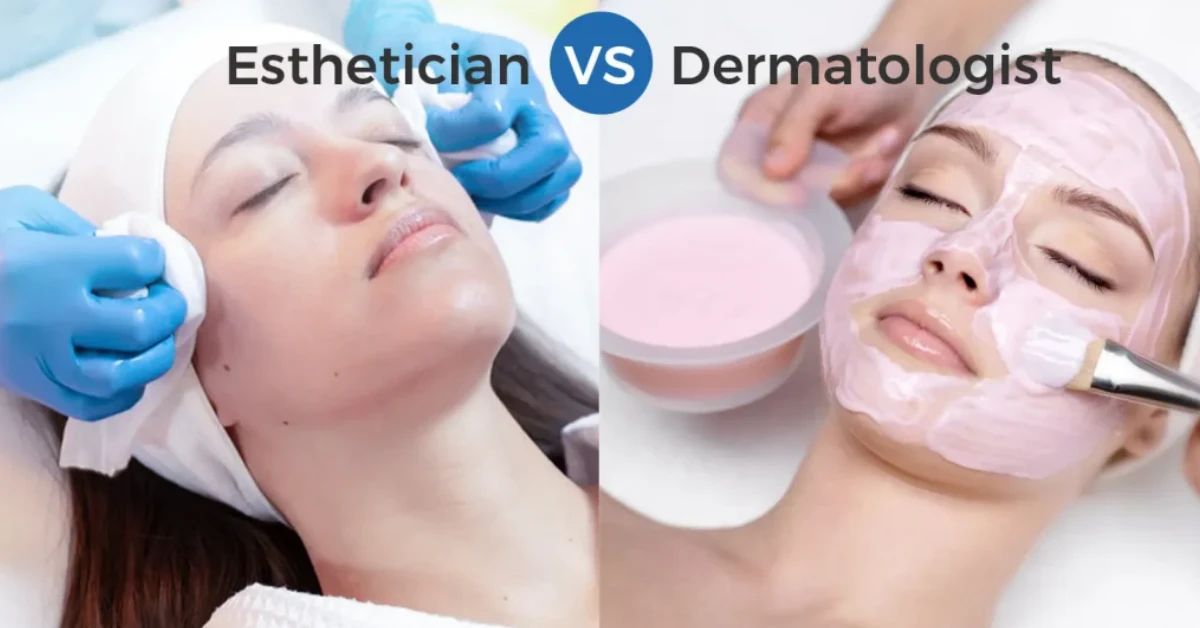
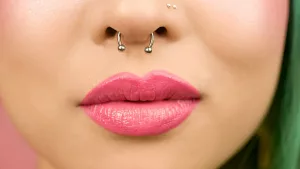

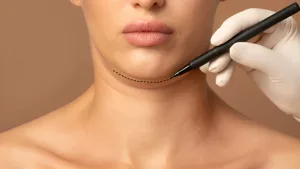




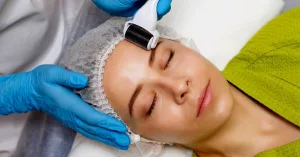



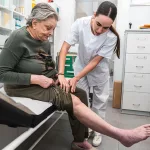



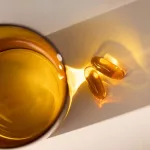

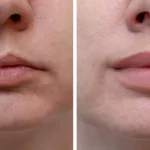





Leave a Reply
You must be logged in to post a comment.